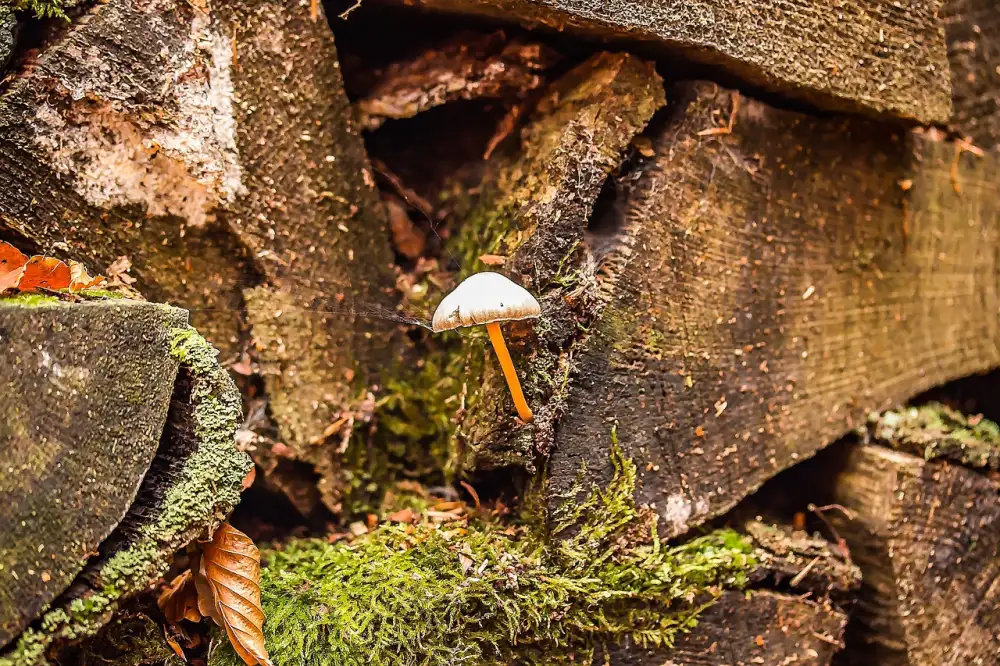Master the Art of Storing Mushrooms: Essential Tips for Proper Mushroom Storage

Introduction to Storing Mushrooms
Properly storing mushrooms is essential for maintaining their freshness and flavor. Whether you have just harvested a batch of wild mushrooms or bought them from the market, knowing how to store them correctly will ensure they stay at their best for longer periods. In this article, we will guide you through the art of storing mushrooms, including choosing the right ones, cleaning and preparing them, and using both the refrigerator and freezer for storage. By mastering these techniques, you will be able to enjoy delicious mushrooms in your culinary creations whenever you desire.
Choosing the right mushrooms for storage
Choosing the right mushrooms for storage is essential to ensure their longevity and quality. Opt for firm, fresh mushrooms with no visible signs of spoilage or discoloration. Varieties like button, cremini, and portobello mushrooms are excellent choices for storage due to their sturdy texture. Avoid storing delicate varieties like chanterelles or morels as they tend to deteriorate quickly. Remember, selecting the right mushrooms is the first step towards mastering the art of mushroom storage.
Cleaning and preparing mushrooms for storage
Cleaning and preparing mushrooms for storage is a crucial step to ensure their longevity and quality. Start by gently brushing off any dirt or debris using a soft brush or a damp cloth. Avoid washing mushrooms as they can absorb water and become slimy. Trim the stems if necessary, but do not remove them entirely, as they contain flavor. For delicate mushrooms like chanterelles, simply wipe them clean with a damp cloth. Once cleaned, allow the mushrooms to air dry completely before storing them in a container or wrapping them in paper towels. Properly preparing your mushrooms will help maintain their freshness and flavor for an extended period of time.
Storing mushrooms in the refrigerator
Storing mushrooms in the refrigerator is a great way to extend their shelf life and keep them fresh for longer. To properly store mushrooms in the fridge, start by removing any packaging they came in. It's best to store them in a paper bag or a loosely covered container to allow for air circulation. Avoid storing mushrooms in plastic bags as they can trap moisture and cause them to spoil faster. Place the mushrooms in the crisper drawer of your refrigerator, which is typically the coolest part of the fridge. It's important to note that mushrooms are sensitive to temperature changes, so try to keep them away from cold spots like the back of the fridge or near the freezer compartment. When stored correctly, mushrooms can last up to a week in the refrigerator, allowing you plenty of time to incorporate them into your culinary creations.
Storing mushrooms in the freezer
Storing mushrooms in the freezer is a great way to extend their shelf life and have them on hand for future culinary creations. To freeze mushrooms, start by cleaning and preparing them as you would for immediate use. Trim off any damaged or discolored parts, then slice or chop them according to your preference.
Next, spread the prepared mushrooms in a single layer on a baking sheet lined with parchment paper. Place the baking sheet in the freezer and allow the mushrooms to freeze completely. This step prevents them from clumping together during storage.
Once frozen, transfer the mushrooms into airtight containers or freezer bags. Remove as much air as possible before sealing to prevent freezer burn. Label the containers with the date of freezing for easy reference later.
When you're ready to use the frozen mushrooms, simply remove the desired amount from the container and thaw them in the refrigerator overnight or cook them directly from frozen. They can be sautéed, added to soups or stews, or used in any recipe that calls for fresh mushrooms.
Remember that frozen mushrooms may have a slightly different texture compared to fresh ones, so they are best used in cooked dishes rather than raw preparations like salads.
By storing mushrooms in the freezer, you can enjoy their earthy flavor and unique texture all year round while reducing waste and ensuring you always have this versatile ingredient at your fingertips.
Tips for extending the shelf life of mushrooms
To extend the shelf life of mushrooms, there are a few tips you can follow. First, avoid washing mushrooms before storing them as excess moisture can cause them to spoil quickly. Instead, gently brush off any dirt or debris using a soft brush or a damp cloth.
Next, store mushrooms in a paper bag rather than a plastic one. This allows for better air circulation and helps prevent moisture buildup. Alternatively, you can place them in a loosely sealed container lined with paper towels to absorb any excess moisture.
Keep mushrooms in the refrigerator's crisper drawer, which provides a slightly cooler and more humid environment. Avoid storing them near strong-smelling foods as mushrooms tend to absorb odors easily.
If you notice any sliminess or discoloration on the mushrooms, remove those immediately to prevent the spread of spoilage.
Remember that mushrooms have a relatively short shelf life, so it's best to use them within a week of purchase for optimal freshness. By following these tips, you can maximize the shelf life of your mushrooms and ensure they stay fresh for longer periods of time.
Properly storing leftover cooked mushrooms
Properly storing leftover cooked mushrooms is essential to maintain their flavor and texture. Once cooked, allow the mushrooms to cool completely before transferring them to an airtight container or resealable bag. Make sure to remove any excess moisture to prevent sogginess. Store the cooked mushrooms in the refrigerator for up to 3-4 days. To reheat, simply sauté them in a pan with a little oil or butter until heated through. Avoid reheating them in the microwave as it can make them rubbery. By following these steps, you can enjoy delicious leftover cooked mushrooms without compromising their quality.
In conclusion, mastering the art of storing mushrooms is essential for culinary excellence. By choosing the right mushrooms, cleaning and preparing them properly, and storing them in the refrigerator or freezer, you can ensure their freshness and quality. Additionally, following tips to extend their shelf life and properly storing leftover cooked mushrooms will help you make the most out of this versatile ingredient. With these techniques, you can confidently store mushrooms and elevate your culinary creations to new heights.
Published: 22. 11. 2023
Category: Food



